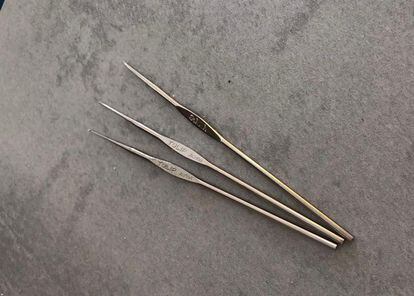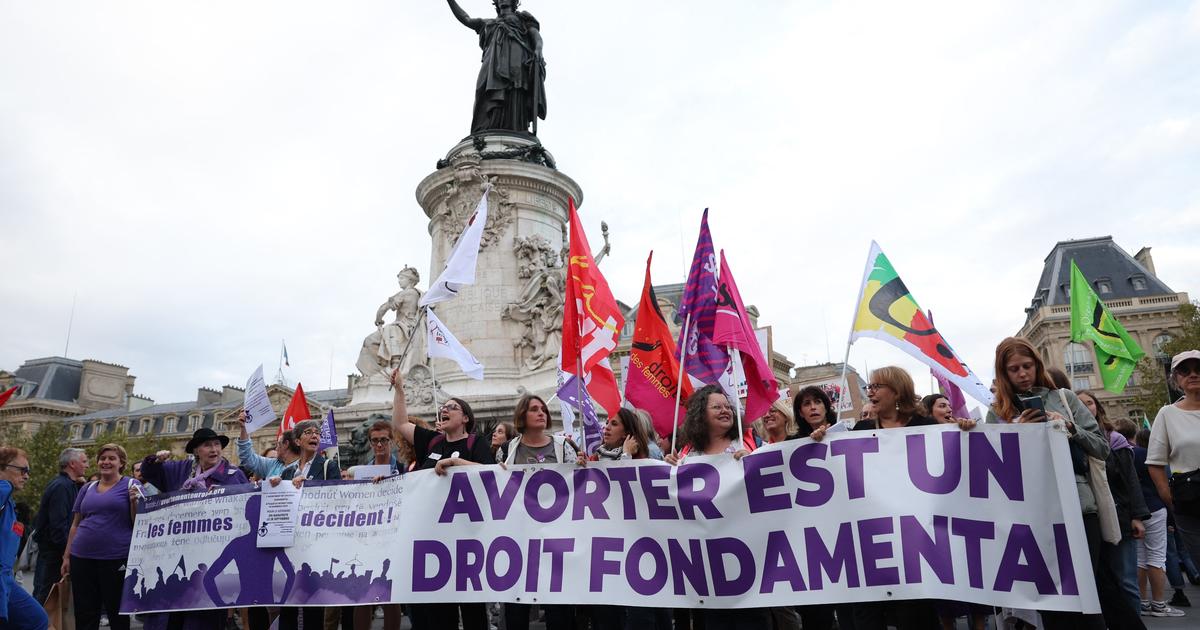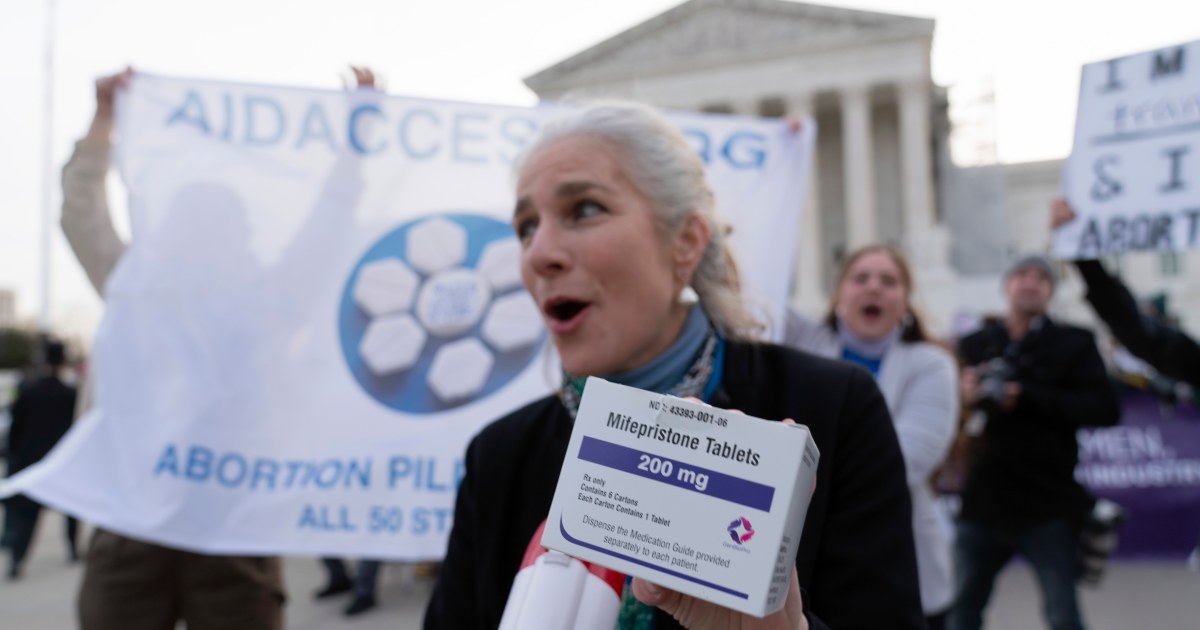Before going to Esther's story, two essential facts to understand the magnitude of the catastrophe.
It is estimated that one million Brazilian women abort each year, but only two thousand manage to do so legally.
When 23-year-old “low class” Esther found out in April that she was pregnant by the boyfriend she had broken up with, she turned to Google.
She desperately typed the trade name of an illegal abortion medication in Brazil, she looked for where to find the teas and needles that some women use to interrupt their pregnancies, she went through pharmacies in her city and others… She tried the entire menu of illegal and unsafe options that she so many women come
Another fact: every two days a Brazilian woman dies from complications of a clandestine abortion.
"I was always in favor of being able to choose," explains Esther in a park in São Paulo.
Her case did not fit into the existing assumptions for legal abortion in her country: rape, risk to the woman's health, and anencephaly.
To her anxiety about being forced into illegality, she added her fear of being a victim of Internet fraud.
In those hours she frantically googling herself and appeared on the screen Milhas pela vida das Mulheres, an NGO created to “guarantee access to a safe abortion for Brazilian women” in her country or abroad.
I doubted.
She gorged herself on teas, tasted needles.
“They were made of metal, because I couldn't find plastic.
It hurt a lot, I bled and I was afraid of hurting myself.”
She abandoned the attempt.
Prey to insomnia and anxiety, the days passed.
Esther was so overcome that she even filed a false rape report,
This Thursday morning, when Esther shared her experience with this newspaper, exactly one week had passed since, through Milhas, she interrupted an eight-week unwanted pregnancy at a clinic in Rosario (Argentina).
Argentine law allows it until 14. “I didn't feel anything, just like gas.
She finished in 10 minutes.
Afterwards, I cried a lot.
She was relieved, surprised and happy”, says this São Paulo woman who has chosen this fictitious name to protect her identity and her secret.
She only told a friend and her boss that she had to authorize the days off for the trip.
"Without him, my life would have taken a different course," she says, thinking of all those girls who raise, often alone, babies they didn't want.
Knitting needles used by Esther to attempt an abortion. Courtesy
He says that the intermediation of the NGO was agile and effective.
"There were few conversations and that was very important," says Esther.
She inserts into her story expressions of infinite gratitude to that network of volunteers, professionals and donors who from minute one welcomed her with love, without judging her.
They informed her, advised her and supported her in one of the most difficult and lonely moments of her life.
An anguish that right now, while you are reading, is eating away at thousands of Latin American women.
Another fact: one in five Brazilian women under the age of 40 has interrupted a pregnancy.
These are all data obtained by Milhas from official sources.
(The estimate of one million legal abortions is from the Ministry of Health; another based on a national survey calculates about 500,000 annually).
Requests for help to the NGO are increasing rapidly.
They are around 350 a month, "but we only managed to help a part of them," explains its founder, Juliana Reis, 58, over the phone.
The network was born from a question asked on Facebook by this actress and activist after reading a BBC Brasil article about Brazilian women having abortions in Colombia.
"Who around here would agree to donate (air) miles to help women who need to go to Colombia for a safe and legal abortion?"
It went viral.
In no time, a vibrant debate germinated there with five thousand reactions.
It was in 2019, "we were already living under Bolsonaro and Damares," Reis points out, referring to the President of the Republic and the evangelical pastor who was Minister for Women.
He confesses that a first attempt to open the debate in 2017 with the same question also on Facebook failed miserably.
He had five responses.
Something had changed.
In Brazil, the far-right ultra-conservative Jair Bolsonaro had just come to power.
But, outside its borders, a feminist revolution and a green tide were sweeping through Latin America.
And it still runs.
Sexual and reproductive rights are experiencing a paradoxical moment in America.
While Colombia, Argentina and Mexico have recently decriminalized the voluntary termination of pregnancy and Chile is considering doing so, the US Supreme Court is preparing to repeal it.
But in Brazil it is still a taboo and politically toxic issue.
The actress Reis, who has been working on abortion for years in the audiovisual field, created Milhas to offer practical solutions to desperate women who cannot wait for legal changes.
She is an updated and Brazilian version of the trips of the Spanish to London or the French to Amsterdam half a century ago or of the
Women on Waves
ship , on board which the doctor Rebecca Gompers performs abortions in international waters.
"We don't do anything illegal, just legal abortions with all the bureaucracy," insists the founder of the NGO, which from the beginning opted for an educational website with simple language.
“Because manicures, maids, accountants, bank managers come to us…”, she explains.
The privileged usually have someone to turn to and how to pay for it.
That was the argument of Luiz Inácio Lula da Silva when he recently defended that it should be “a matter of public health” because the current law harms the poor.
That the favorite in the electoral polls mentioned abortion in the campaign was considered a serious political error.
The Milhas volunteers are determined to bring the issue out of the closet.
At first, they referred women to clinics in Colombia, then also to Argentina and Mexico.
But the pandemic and the consequent closure of borders forced them to change their pace.
They had nine women ready to travel.
"Then we realized that women were unaware of the law, and we began to work with legal abortion in Brazil," says Reis.
For some it was normal that the husband forced them to have sex without her consent, or they had been raped when they were drunk until they fell unconscious... They had the right to interrupt the pregnancy in public health.
Milhas already derives almost 10% of legal proceedings.
Esther in a park in São Paulo. Lela Beltrão
With those that do not meet the requirements, such as Esther, the intermediary network so that they can be intervened in Colombia, Argentina or Mexico.
Depending on her possibilities, she pays all, part or nothing.
Those who can also provide a justice fund to pay for the procedure for a woman in need.
Esther paid for everything out of her pocket with a loan she had taken out for something else.
The activist Reis points out that it is often not enough to have money, logistics, clinics, gynecologists and psychologists.
Also in this, supporting the most vulnerable is more complex.
For example, serving those single mothers with three children who cannot travel to another city —let's not say abroad— because they don't even have someone to leave their offspring with.
Katia, a 34-year-old unemployed woman, did have someone to take care of her three children when she went to Mexico in the middle of the pandemic, her husband.
The fourth pregnancy had come by surprise.
"I felt that she was not part of me," says this woman who uses a fictitious name to protect herself from her.
She didn't want to do anything illegal.
When she returned, she began to collaborate as a volunteer with the NGO, she took the issue out of the closet and revolutionized family life.
Her relatives were “a little conservative” people who never talked about sexual education, contraceptives, the menstrual cycle… “The revolution was to bring sexual and reproductive rights and abortion into the house at coffee time.
It shocked the whole family.
To my parents, my cousins…”, she says, satisfied.
She illustrates her exchange with her father: "He is a Bolsonarista, but he already says: 'We need the law to be applied in rape cases."
Both Katia and Esther accepted the suggestion of taking advantage of the intervention to insert an IUD (intrauterine device).
That the São Paulo subway distributes condoms may lead one to believe that access to contraceptive methods is simple, but in public health it is a laborious process that sometimes required the permission of the husband.
Nothing indicates that Brazil is heading to follow in the footsteps of the most populous countries in the region.
A good thermometer of the situation is the recent survey carried out by the newspaper
O Globo
to parliamentarians.
73% declared themselves against legalizing abortion.
But even more expressive are these other data: those in favor of prohibiting it even in the three assumptions add considerably more (24) than the defenders of expanding the right (15).
And the only presidential candidate, Simone Tebet, of the center right, preferred not to speak.
That Brazil was a pioneer in America by legislating on abortion in 1940 means little anymore.
Esther has not been able to take a break to digest the experience.
She arrived from Rosario on Sunday night and the next day she was at work like any other Monday.
Her mother and the rest of her family believe that she spent those four days of partying, celebrating her birthday on a farm.
“My mother comes from enormous poverty.
With her mentality, she would not understand my decision”, she says with great sadness, although she is relieved and happy.
Subscribe here to the EL PAÍS América newsletter and receive all the key information on current affairs in the region.









